Membership of Complement UK currently includes 45 Principal Investigators representing 15 UK Research Centres.
- Brunel University London
- Cardiff University
- Imperial College London
- King's College London
- Newcastle University
- University College London
- University of Bath
- University of Cambridge
- University of Edinburgh
- University of Leeds
- University of Leicester
- University of Manchester
- University of Oxford
- University of Southampton
Brunel University London
General Enquiries:
Brunel University London
Kingston Lane
Uxbridge
Middlesex UB8 3PH
Tel: +44 (0)1895 274000
Website: www.brunel.ac.uk
 Principle Investigator: Dr Uday Kishore
Principle Investigator: Dr Uday Kishore
Uday Kishore is a teacher and a scientist with special interest in innate immunity. He was the Founder Director of the Centre for Infection, Immunity and Disease Mechanisms, Brunel University London. He earned his BSc from S. P. Jain College, Sasaram, Bihar; MSc from Hindu College, Delhi; and PhD from the Department of Zoology, University of Delhi and CSIR Institute of Genomics and Integrative Biology, Delhi, India. After spending a year at the Salk Institute for Biological Studies, La Jolla, California as a NASA Fellow, he moved to the University of Oxford for the most part of his post-doctoral training, first at the MRC Immunochemistry Unit, Department of Biochemistry and then at the Weatherall Institute of Molecular Medicine, John Radcliffe Hospital. His previous positions include NASA fellow,
Wellcome Trust International Fellow and Alexander Humboldt fellow. He is also the recipient of MRC Investigator Prize, European Commission Young Scientist Prize, and Mother Teresa Excellence Award. Dr Kishore has authored over 125 peer-reviewed research papers, 25 book chapters, 2 international patents, edited 8 books, and is currently writing a text book on host pathogen interaction. His research team is currently trying to understand how the innate immune components deal with self, non-self and altered self. Mostly revolving around complement proteins (specially C1q, factor H and properdin) and C-type lectins (SP-A, SP-D and DC-SIGN), (1) we examine their importance in host-pathogen interaction using HIV-1, Influenza A virus, Mycobacterium tuberculosis and Aspergillus fumigatus as model pathogens; (2) we are trying to ascertain their role as immune surveillance molecules in allergy (ABPA, allergic rhinitis and dust mite allergy); cancer (pancreatic, breast and ovarian cancers; leukaemia, glioblastoma, and mesothelioma); and human pregnancy; and (3) we are devising drug delivery strategies in allergy and cancer through nano-particles that can exploit the best of what the innate immunity has to offer.
Contact details: Uday.Kishore@brunel.ac.uk
Websites: https://www.researchgate.net; https://loop.frontiersin.org; http://www.facebook.com
Cardiff University
General Enquiries:
Cardiff University
Cardiff
Wales
CF10 3AT
Tel: +44 (0)29 2087 4000
Website: www.cardiff.ac.uk
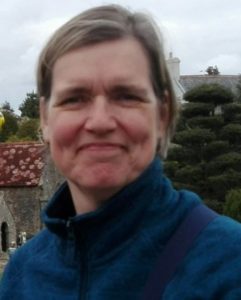 Principle Investigator: Dr Carmen Van den Berg
Principle Investigator: Dr Carmen Van den Berg
Senior Lecturer, Cardiff University School of Medicine
I first became interested in the complement system during my masters in Biochemistry, when I wrote an essay on the interaction of the membrane attack complex with lipid membranes. I subsequently did my PhD with Hans van Dijk (Utrecht, the Netherlands) on ‘Mouse Complement Components C3 and C5: Biochemical and in vivo immunopharmacological aspects’. In 1991 I moved to Cardiff to join Paul Morgan’s Complement group where I investigated the species specificities of membrane bound complement regulators (CD59, MCP) and the signalling through GPI-anchored molecules.
After obtaining a lectureship in the department of Pharmacology, I investigated the expression and function of C-regulators on vascular cells, structure and function of C-reactive protein and the C5aReceptor and C5a (regulation of expression and susceptibility to proteolytic degradation). Since 1997 I have been collaborating with Denise Tambourgi, Sao Paulo, Brazil, investigating the effects of spider and snake venoms on Complement activation and C-regulators and C-receptors expression. The last few years I have been mainly involved in teaching of Undergraduate students (Medical Pharmacology and Medicine), which includes lectures and practicals on Complement, and I am the route lead of the Intercalated Pathology BSc degree. I coordinate the Immunology teaching to BSc Medical Pharmacology and Intercalated students. Currently my main research interest is the effects of enzymes (neutrophil derived or venom derived) act on complement components and regulators and receptors.
Contact details: vandenbergcw@cardiff.ac.uk
Website: https://www.cardiff.ac.uk
 Principle Investigator: Professor Julie Williams
Principle Investigator: Professor Julie Williams
Director, Dementia Research Institute, Cardiff University School of Medicine
Now a senior figure in the field of Alzheimer’s disease (AD) research, Julie graduated from the University of Wales Institute of Science & Technology (BSc, 1978).
Julie's research focuses upon identifying and understanding genes which alter the risk of complex psychological and neurodegenerative disorders, with a particular interest in deciphering the genetics of AD. A pioneer of working collaboratively, having recognised early the complexity of AD genetics, and having participated in many world-wide, powerful consortia, the consortium she leads, GERAD (Genetic and Environmental Risk in Alzheimer’s Disease), plays a dominant role in the field, focusing on developing larger, more powerful studies. Her research has encompassed GWAS, sequencing, large exome chip association studies, and cross disease complex phenotypic and statistical analyses. JW became a leader of the IGAP genetics consortium, which incorporates over 450 scientists world-wide, with access to a 90,000 strong cohort, mega-meta analyses of which have identified at least over 25 new susceptibility variants for AD.
Contact details: WilliamsJ@cardiff.ac.uk
Website: https://www.cardiff.ac.uk
 Principle Investigator: Professor Paul Morgan
Principle Investigator: Professor Paul Morgan
Professor of Immunology, School of Medicine, Cardiff University
Llanelli-born Professor Paul Morgan graduated from the Welsh National School of Medicine in 1980. Following his early medical training in Cardiff, he specialised in Clinical Biochemistry obtaining his PhD in 1984.
Following two years in the US developing his research skills, Professor Morgan returned to Cardiff University to take up a lectureship in Clinical Biochemistry. He won the prestigious Wellcome Trust Senior Clinical Fellowship in 1987, and remained a Fellow for 15 years.
In 2001, he was appointed Head of Medical Biochemistry and Immunology in the former University of Wales College of Medicine. Post-merger with Cardiff University, he was appointed Dean of Medical Research in the School of Medicine from 2007, responsible for developing the School’s Medical Research strategy. He became Dean of Medicine and Head of the School of Medicine from April 2009 to December 2013. He is a Member of the College of Physicians, Fellow of the College of Pathologists and Fellow of the Academy of Medical Sciences.
Professor Morgan is a research specialist in Clinical Immunology and has created an internationally respected research group at Cardiff working in Complement Biology. He has published over 300 research papers and reviews and remains research-active, particularly in the role of complement in neurological and degenerative diseases.
Contact details: MorganBP@cardiff.ac.uk
Website: https://www.cardiff.ac.uk
Imperial College London
General Enquiries:
Imperial College London
South Kensington Campus
London SW7 2AZ, UK
Tel: +44 (0)20 7589 5111
Website: www.imperial.ac.uk
 Principle Investigator: Professor Marina Botto
Principle Investigator: Professor Marina Botto
Head of the Department of Immunology and Inflammation, Professor of Rheumatology and Director of Bioservices at Imperial College London.
Consultant Rheumatologist at Imperial Academic Health Science Centre, Hammersmith Hospital Campus.
The focus of Professor Botto’s research programme is to understand how Complement deficiency contributes to the autoimmune disease, systemic lupus erythematosus (SLE). Her laboratory is particularly interested in understanding the consequences of inherited complement deficiencies in humans and the role(s) that the complement system plays in the clearance of dying cells as well as immune complexes. Using in vivo models, genetic and cellular approaches and experimental models of inflammation she has demonstrated that i) inherited defects in the pathways for clearance of cellular debris and immune complexes predispose to the development of SLE; ii) there is a link between spontaneous autoimmunity and abnormalities of the physiological clearance of apoptotic cells in humans with complement deficiency; iii) the complement system modulates the adaptive immune system; iv) autoimmunity varies according to the genetic background of the model used and identified lupus susceptibility loci. The laboratory currently aims to delineate the contribution of Complement system in the induction and resolution of inflammation and to define the mechanisms by which the complement system regulates the tolerance to self-antigens.
Contact details: m.botto@imperial.ac.uk
Website: https://www.imperial.ac.uk/
 Principle Investigator: Professor Matthew Pickering
Principle Investigator: Professor Matthew Pickering
Prof. Pickering is an established international expert on the complement system and its role in health and disease. He is a Wellcome Trust Senior Fellow in Clinical Science and his research program has been funded by the Wellcome Trust since 2003. His clinical expertise includes systemic lupus erythematous and complement deficiency states. He is a Professor of Rheumatology at Imperial College and Academic Director of the Imperial Lupus Centre. He was Head of Specialty, Rheumatology, Imperial Healthcare NHS Trust between 2014 and 2019. His research has achieved international recognition for elucidating the relationship between uncontrolled complement activation and renal disease. His research program has utilized genetic characterization of families with complement-mediated renal disease, the in vitro studies of complement regulatory proteins and the generation of unique murine models of complement-mediated kidney disease. He is a member of both the International Complement Society and the European Complement Network.
Contact details: matthew.pickering@imperial.ac.uk
Website: https://www.imperial.ac.uk
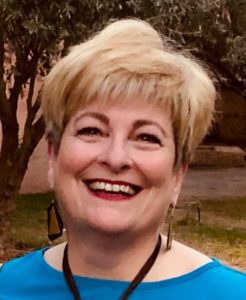 Principle Investigator: Professor Liz Lightstone
Principle Investigator: Professor Liz Lightstone
Prof Liz Lightstone is an international expert in the care of patients with lupus nephritis and developing innovative approaches to diagnosis, prognosis and treatment of this and other complement related glomerular diseases. She is Professor of Renal Medicine in the Centre for Inflammatory Disease at Imperial College London, and an Honorary Consultant Renal Physician in the Imperial College Healthcare NHS Trust Renal and Transplant Centre. Together with colleagues in the Imperial Lupus Centre, she pioneered the use of steroid-minimising regimens in lupus nephritis. She was chief investigator on the international multicentre randomised RITUXILUP trial. She is particularly interested in developing better ways of predicting outcomes, not least by improving adherence to therapy and using an ‘omics approach to analyzing renal biopsies. She is the UK lead for the Achillion sponsored trial of a C3 inhibitor in C3 glomerulonephritis (C3GN) and lead PI at Imperial for a Novartis trial of a different inhibitor in C3GN. She is global co-chair of the SONG-GD initiative (https://songinitiative.org/projects/song-gn/) which is developing, with healthcare professionals, patients and their carers, core outcomes to be included in all trials of glomerulonephritis. She is co chair of the UK Kidney Research Consortium Glomerulonephritis Clinical Study Group and a member of the EU executive of the Lupus Nephritis Trials Network.
Key research interests:
- Histology of renal biopsies in lupus nephritis and C3GN
- Outcomes of lupus nephritis and C3GN
- Clinical trials in lupus nephritis and C3GN
Contact details: l.lightstone@imperial.ac.uk
Website: https://www.imperial.ac.uk
King's College London
General Enquiries:
King's College London
Strand
London
WC2R 2LS
United KingdomTel: +44 (0)20 7836 5454
Website: www.kcl.ac.uk
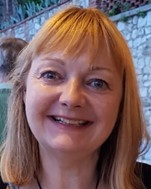 Principle Investigator: Dr Roseanna Greenlaw
Principle Investigator: Dr Roseanna Greenlaw
Research Associate, Protein Therapeutics Laboratory, School of Immunobiology and Microbial Sciences, King’s College, London.
I have worked in the field of Transplant Immunology since graduating. My current interests are protein therapeutics in translational research and I am presently involved in a clinical trial investigating the efficacy of a cell-binding complement inhibitor to prevent ischaemia-reperfusion injury in renal transplantation.
Contact details: roseanna.greenlaw@kcl.ac.uk
Website: www.kcl.ac.uk
 Principle Investigator: Professor Steve Sacks
Principle Investigator: Professor Steve Sacks
Professor of Nephrology, Former Director, MRC Centre for Transplantation, NIHR Emeritus Senior Investigator and Biomedical Research Centre Transplant Theme Lead, King’s Health Partners Clinical-Academic Lead in Transplantation & Abdomen, King's College London
Professor Steve Sacks is an academic nephrologist undertaking research on locally made complement components and impact in organ transplantation. This has led to new therapeutic and imaging approaches that are either at or close to clinical evaluation. More recently, his laboratory has identified tissue stress-associated carbohydrate ligands recognised by the complement system, which are being further characterised to enable specific detection and blockade in medical conditions. On-going responsibilities as MRC Centre Director, NIHR Senior Investigator, Fellow of the Academy of Medical Sciences and Co-Lead of Complement UK allow Professor Sacks to influence research and training policy and build public confidence in research.
Contact details: Steven.sacks@kcl.ac.uk
Website: www.kcl.ac.uk
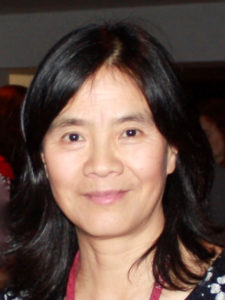 Principle Investigator: Professor Wuding Zhou
Principle Investigator: Professor Wuding Zhou
Major research activities (current and in the last 5 years)
Investigating the roles of complement receptors (C5aR, C3aR, CR3) in immune regulation and pathogenesis of disease (renal ischemia/reperfusion injury, renal fibrosis, urinary tract infection and cancer). Investigating the roles of collectin-11 (a recent described soluble C-type lectin) in host defence, autoimmunity and cancer.
Contact details: wuding.zhou@kcl.ac.uk
Website: www.kcl.ac.uk
Newcastle University
General Enquiries:
Newcastle University
Newcastle upon Tyne
NE1 7RU
Tel: +44 (0)191 208 6000
Website: www.ncl.ac.uk
 Principle Investigator: Professor David Kavanagh
Principle Investigator: Professor David Kavanagh
David Kavanagh is the Professor of Complement Therapeutics at the National Renal Complement Therapeutics Centre (NRCTC). He graduated in Medicine and Immunology from the University of Glasgow in 1998. Following basic medical training he undertook a PhD at Newcastle University elucidating the genetics of atypical Haemolytic Uraemic Syndrome (aHUS). He then undertook a post-doctoral research fellowship in Washington University School of Medicine, St. Louis examining the functional consequences of genetic variants in the complement system in aHUS. He returned to the UK in 2006 to take up a Kidney Research UK Fellowship at the University of Edinburgh Biomolecular NMR unit, examining structure/function relationships in complement factor H. He moved back to Newcastle in 2008 to form his own research group with a Wellcome Trust Fellowship. For his work on aHUS, he was awarded the Renal Association’s Young Investigator (Raine) award in 2009. His research group currently investigates complement in renal and retinal diseases and is fully integrated with the NRCTC to provide rapid translational benefits to patients.
Contact details: David.Kavanagh@ncl.ac.uk
Website: www.ncl.ac.uk
 Principle Investigator: Dr Kevin Marchbank
Principle Investigator: Dr Kevin Marchbank
Reader in Complement Biology, Newcastle University and the National Renal Complement Therapeutics Centre (NRCTC).
Over the last two decades Dr Marchbank has effectively worked his way backwards through many facets of the complement system focussing on the bridge between innate and acquired immunology and the role complement plays in immuno-tolerance.
His research career began with analysis of CD59 function in mouse and man in the Morgan grouping in Cardiff. On a Wellcome Trust prize travelling fellowship to the Holers group in Denver, he generated several unique human complement receptor 2 transgenic (hCR2 tg) mice. These and the hCR1 transgenic mice that he developed within a Wellcome Trust career development fellowship back in Cardiff, are allowing the importance of complement regulation, cell signalling or immune complex handling in disease to be fully investigated.
Over the last decade or so, based at Newcastle University and the NRCTC, Dr Marchbank entered the study of autoantibody generation in devastating kidney diseases. He has most recently developed a unique animal model of aHUS based on a C3 gain-of-function change as well as exciting new homo-dimeric complement therapeutics to treat complement-mediated diseases. These areas are now the focus of multiple grant awards.
Contact details: kevin.marchbank@newcastle.ac.uk
Website: www.ncl.ac.uk
 Principle Investigator: Professor Claire Harris
Principle Investigator: Professor Claire Harris
Professor of Molecular Immunology at Newcastle University & National Renal Complement Therapeutics Centre, Newcastle
Claire’s interest in complement dates back to her undergraduate days when she was inspired by teaching on innate immunity and was intrigued by the ability of a protein-based, soluble system to punch holes in target cells! Her interest in complement grew while studying complement during her PhD in the lab of Sir Peter Lachmann in Cambridge and during her postdoc with Professor B Paul Morgan in Cardiff. Funding from the Wellcome Trust enabled her to establish a group focused on structure–function relationships in complement activators and regulators with a particular interest in the mechanisms underlying complement dysregulation and disease. Three years spent as Head of Complement at GlaxoSmithKline in the ImmunoInflammation Therapy Area provided invaluable insight into the process of target and indication validation and drug discovery and she joined Newcastle University in 2016 to further her work in translational research and experimental medicine. With experience both in academia and big Pharma, her current research is focussed on therapeutic approaches for modulation or inhibition of the complement cascade, particularly on strategies to target or ‘home’ therapy specifically to disease sites. She has a long-standing interest in complement biomarkers of disease (diagnostics, prognostics), including measurement of complement proteins and activation products, and detection and functional analysis of nephritic factors (autoantibodies which bind complement enzymes). These combined research foci provide insight into disease mechanisms which will be critical for design of effective anti-complement therapies and stratification of patients. Her group is a key component of the Renal Complement Therapeutics Centre based at RVI (aHUS National Service) and other national/international Rare Disease Working Groups.
Contact details: Claire.Harris@newcastle.ac.uk
Website: www.ncl.ac.uk
 Principle Investigator: Professor Neil Sheerin
Principle Investigator: Professor Neil Sheerin
Professor of Nephrology at Newcastle University and a Consultant Nephrologist at the Freeman Hospital, Newcastle upon Tyne.
Professor Sheerin moved to Newcastle in 2007 from Guy’s Hospital, London where he was a Senior Lecturer in Renal Medicine and before that a Wellcome Trust Fellow. His laboratory research is focused on immune mediated renal disease, with a specific interest the role of the complement system in native and transplant kidney disease and complement therapeutics. His clinical interests include complement-mediated renal disease, kidney transplantation and the treatment of patients with progressive chronic kidney disease.
Contact details: Neil.Sheerin@newcastle.ac.uk
Website: www.ncl.ac.uk
University College London
General Enquiries:
University College London,
Gower Street,
London,
WC1E 6BT
Tel: +44 (0) 20 7679 2000
Website: www.ucl.ac.uk
Principle Investigator: Professor Glen Jeffery
Professor Jeffery’s research interests:
- Retinal function in heath and ageing, particularly in age related macular degeneration.
- Inflammation as a driver of retinal disease from the lab into the clinic.
The retina has the greatest metabolic demand in the body and the largest concentration of mitochondria. It also ages rapidly with 30% central photoreceptor loss over normal lifespan. Inflammation and complement upregulation are features of the ageing retina and commonly therapeutic targets. However, we have recently shown that complement plays a key role in the development of the retina and its absence likely established a footprint exploited by age.
Contact details: g.jeffery@ucl.ac.uk
Website: www.ucl.ac.uk
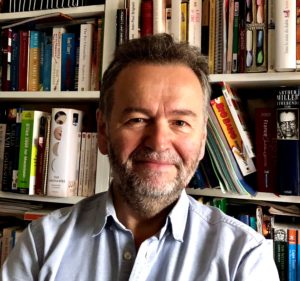 Principle Investigator: Professor Stephen E Moss
Principle Investigator: Professor Stephen E Moss
Professor Steve Moss holds the Norman Ashton Chair of Biomedical Research at the UCL Institute of Ophthalmology, where he also founded and was until 2009 the Head of the Division of Cell Biology. He obtained his PhD from Heriot-Watt University in 1986, before moving to a research fellowship at the Imperial Cancer Research Fund (now CRUK) labs in central London. In 1990 he took up a Lectureship in the Department of Physiology at University College London, progressing to a Readership in 1995 and then to a Chair in 2000 upon his move to the Institute of Ophthalmology. His major research interest post PhD was initially the annexin family of calcium-binding proteins, though since 2000 his work has focused on the retina and new research programmes aimed at understanding the causes of AMD.
This has taken his activities into the broader area of retinal pigment epithelial cell biology, the complement system and ocular angiogenesis. More recently he has become involved in the development of novel therapeutics targeting retinal vascular disease and also tumour angiogenesis. His research is funded by grants from the Wellcome Trust, Fight for Sight, the MRC, BBSRC and the British Heart Foundation, and he also has a number of collaborations with industrial partners. Professor Moss has served on the editorial boards of several journals, he is a member of many learned societies, he held a term of office as President of the European Calcium Society and also acted for four years as Vice-Dean for Enterprise in the Faculty of Brain Sciences at UCL.
Contact details: s.moss@ucl.ac.uk
Website: www.ucl.ac.uk
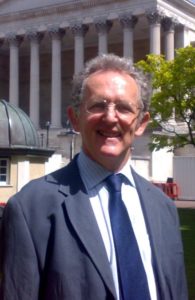 Principle Investigator: Professor Steve Perkins
Principle Investigator: Professor Steve Perkins
Prof Steve Perkins has been at University College since 1998 when this merged with the Royal Free Hospital School of Medicine. He heads the Structural Immunology group which looks at structure-function relationships in the complement proteins and in antibodies, using a diverse range of biophysical and structural methods. He maintains a much-accessed web database of complement genetic variants that was re-released in 2018 at https://www.complement-db.org/home.php as an upgrade of the original database that was started in 2004.
Contact details: s.perkins@ucl.ac.uk
Website: www.ucl.ac.uk
Principle Investigator: Dr Jennifer Pocock
Professor Pocock's key research intersts include:
- microglia
- neuroinflammation
- neurodegeneration
- Alzheimer’s Disease
Contact details: j.pocock@ucl.ac.uk
Website: www.ucl.ac.uk
University of Bath
General Enquiries:
University of Bath
Claverton Down
Bath
BA2 7AY
United Kingdom
Website: www.bath.ac.uk
 Principle Investigator: Professor Jean van den Elsen
Principle Investigator: Professor Jean van den Elsen
The aim Jean research is to study the structural and physico-chemical characteristics of proteins involved in maintaining homeostasis of the human body. I am particularly interested in proteins, and their physiologically relevant complexes, that determine the elemental struggle between pathogenic microbes and the immune system of the host. Current projects include: The Complement System and Microbial Immune Evasion: The human complement system is comprised of about 20 plasma proteins and 10 receptors on cell membranes. Its primary function is to defend the host against microbial infections, leading to the clearance of antigen-antibody complexes and bacterial lysis. Many bacterial pathogens have evolved ways to adapt to their host environment and survive host immune attack by producing a variety of immune-modulatory factors. My laboratory studies the structural and functional aspects of the interactions between these immune evasion proteins and the complement system. This information will help to design better vaccines and drugs for the treatment of autoimmune diseases.
Contact details: bssjmhve@bath.ac.uk
Website: www.bath.ac.uk
University of Cambridge
General Enquiries:
University of Cambridge
The Old Schools
Trinity Lane
Cambridge
CB2 1TN
United Kingdom
Tel: +44 (0)1223 337733
Website: www.cam.ac.uk
 Principle Investigator: Professor Wilhelm Schwaeble
Principle Investigator: Professor Wilhelm Schwaeble
Director of Research, University of Cambridge
For over 30 years, I have been fortunate enough to study the organization and molecular composition of the complement system. My research activities comprise molecular biology, gene regulation, protein biosynthesis, structural biology, structure/function relations, measurements of functional activities, systems cross-talk, establishment of gene-targeted and transgenic mouse lines and their phenotypic characterisation in experimental models of disease. One of my key achievements over the recent years was my part in the discovery of a novel activation pathway of complement, now known as the lectin pathway. My work has helped to elucidate not only the molecular composition and activation events of this pathway but has led to the discovery of pathophysiological processes driven and maintained by dysregulation of this specific activation pathway, that are linked to a plethora of chronic inflammatory human diseases. Until now, I have supervised more than 40 PhD students and many of my students decided to stay in research either at academic institutions or in industry. My work has led to more than 100 patents and the involvement with industrial partners to support the translation of our findings into new therapeutic reagents. I take pride in seeing some aspects of my research being translated into improved patient care.
Contact details: hws24@cam.ac.uk
Website: www.cam.ac.uk
University of Edinburgh
General Enquiries:
University of Edinburgh
Old College,
South Bridge,
Edinburgh
EH8 9YL
Tel: +44 (0) 131 651 5000
Website: www.ed.ac.uk
 Principle Investigator: Dr Chloe Stanton
Principle Investigator: Dr Chloe Stanton
Dr Chloe Stanton received her BSc degree in Biochemistry from the University of Leeds. Following time spent working as a research technician in a human genetics lab (Mayo Clinic, Florida) and a molecular biology lab (University of California San Diego, California), she moved to Edinburgh to start her PhD with Professor Alan Wright studying the genetic and molecular mechanisms of age-related macular degeneration (AMD), including complement factors. Subsequent work has identified dominant negative mutations in C1QTNF5 that lead to late-onset retinal degeneration (L-ORD), a rare autosomal dominant retinal dystrophy with striking phenotypic similarities to age-related macular degeneration. She is now an Investigator Scientist in the Molecular Genetics of Vision-related traits research group at the MRC Human Genetics Unit, University of Edinburgh.
Contact details: chloe.stanton@igmm.ed.ac.uk
Website: www.ed.ac.uk
 Principle Investigator: Professor Paul Barlow
Principle Investigator: Professor Paul Barlow
Chair of Structural Biology at the University of Edinburgh
Professor Barlow's research currently focuses on the relationship between the structure and the function of factor H and exploiting this information to design factor H-based clinical interventions. He was scientific co-founder of Boston-based precision medicine company Gemini Therapeutics, and more recently the medical-device company Invizius was spun out of his laboratory. He is collaborating with Edinburgh-based biotech company Ingenza on the production of recombinant factor H with tailored N-glycans.
Research interests: structural biology; biophysics; recombinant protein production; glycobiology; therapeutics
Contact details: paul.barlow@ed.ac.uk
Website: www.ed.ac.uk
University of Leeds
General Enquiries:
University of Leeds,
Leeds,
LS2 9JT, UK.
Tel: +44 (0)113 243 1751
Website: www.leeds.ac.uk
University of Leicester
General Enquiries:
The University of Leicester
University Road
Leicester
LE1 7RH
United Kingdom
Tel: +44 (0) 116 252 2522
Website: le.ac.uk
Principle Investigators: Professor Russel Wallis
University of Manchester
General Enquiries:
The University of Manchester
Oxford Road
Manchester
M13 9PL
Tel +44 (0) 161 306 6000
Website: www.manchester.ac.uk
 Principle Investigator: Professor Simon Clark
Principle Investigator: Professor Simon Clark
Helmut Ecker Endowed Professor of AMD at the Institute of Ophthalmic Research, University of Tübingen, Germany.
Simon is the Helmut Ecker Endowed Professor of AMD at the Institute of Ophthalmic Research, University of Tübingen, Germany, where he leads a research team studying the molecular mechanisms driving age-related macular degeneration (AMD), the third leading cause of blindness worldwide. In particular his work focuses on the role of the complement system, a powerful part of a host’s immune system, in the development of this devastating disease and how the modulation of such as response can be harnessed to slow disease progression.
Simon’s translational portfolio includes the development of novel complement modifiers that can be used as therapeutics in complement-mediated diseases of the eye, as well as around the body. He also helps develop new diagnostic tools for complement driven disease and methods for patient stratification for future treatment.
University of Oxford
General Enquiries:
University of Oxford
University Offices
Wellington Square
Oxford
OX1 2JD
United Kingdom
Tel: +44 1865 270000
Website: www.ox.ac.uk
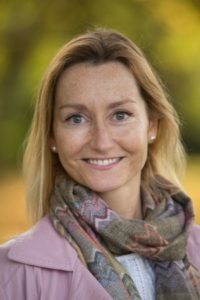 Principle Investigator: Dr Elena Ribe
Principle Investigator: Dr Elena Ribe
Senior Postdoctoral Research Scientist, Department of Psychiatry
I am a neurobiologist with an interest in understanding mechanisms of neurodegeneration to discover potential therapeutics for disease modification. My experience is centered in pre-clinical research: understanding basic mechanisms of disease to early drug discovery. I have generated one of the most informative mouse models of Alzheimer’s Disease (AD) and neurodegeneration and I have tracked experience in the use of primary neuronal cultures and siRNA knock down to unravel molecular mechanisms leading to neurotoxicity and associated pathology in the core of the amyloid pathway. I am currently interested the role that the complement system may have in neurodegeneration and how neuroinflammation may impact disease onset and progression. Since immune genes and complement components have been identified as risk factors for late-onset AD in recent Genome-Wide association studies, they have been repeatedly identified as biomarkers and have been found the postmortem AD brain, the complement system may have a role in disease onset/progression. By combining tools to specifically downregulate gene expression in neurons together with biochemical tools to measure gene/protein expression, I aim at unravelling the critical components in the complement pathway that then could be validated in vivo using rodent models of neurodegeneration. Identifying which components of the complement system are relevant in AD, particularly in the context of synaptotoxicity and microglial activation since synaptic toxicity is the earliest pathological feature and the best correlate with cognitive decline in AD, may bring novel therapeutics for the treatment of this devastating disease.
Contact details: elena.ribe@psych.ox.ac.uk
Website: https://www.psych.ox.ac.uk
University of Southampton
General Enquiries:
University of Southampton
University Road
Southampton SO17 1BJ
Tel +44 (0)23 8059 5000
Website: www.southampton.ac.uk
 Principle Investigator: Professor Andrew Lotery
Principle Investigator: Professor Andrew Lotery
Chair of Ophthalmology and Honorary Consultant Ophthalmic Surgeon
Andrew runs an integrated laboratory and clinical ophthalmic research program, dividing his week between directing vision research in the Clinical and Experimental Sciences Academic Unit at The University of Southampton and his clinical responsibilities seeing patients in Southampton Eye Unit.
His specialty is in medical retina with major research interests in age-related macular degeneration, ophthalmic genetics, retinal gene and stem cell therapies. One area of current research involves investigating how complement dysregulation causes age related macular degeneration (AMD) and he has been UK chief investigator on the lampalizumab clinical trials and most recently the SIGHT study. He is one of the academic founders of Gyroscope Therapeutics which is a company trying to develop gene therapy for AMD.
Previously Editor in Chief of the journal Eye, he and his team have published well over two hundred papers in high impact journals such as Nature Genetics, the Lancet and the New England Journal of Medicine. He is also an NIHR Senior Investigator and Chair of the Scientific Committee of the Royal College of Ophthalmologists.
Contact details: A.J.Lotery@soton.ac.uk
Website: www.southampton.ac.uk
